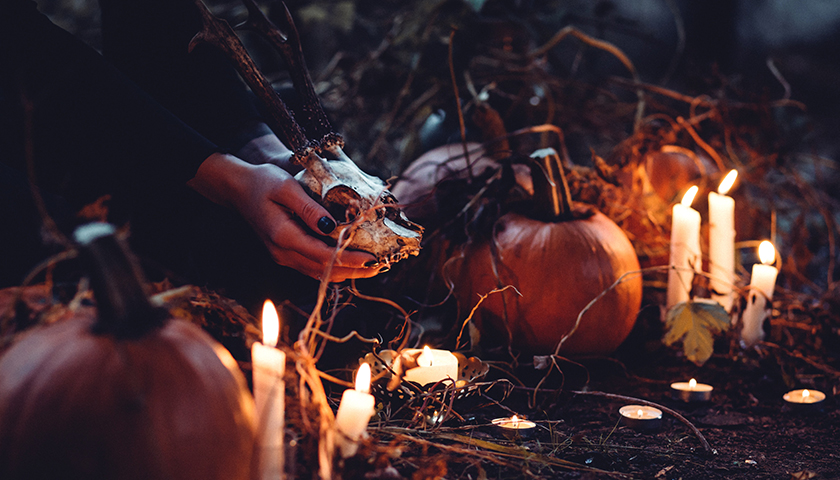Conventional wisdom holds that Halloween is essentially a secular and pagan holiday, the result of the Christian Church appropriating an ancient Celtic harvest festival. But one strain of critical opinion tends to the view that the holiday was thoroughly Christian from the start.
In the church calendar, Halloween (All Hallows’ Eve) is the beginning of a triduum of holidays commemorating the dead, continuing with All Saints’ Day on November 1 and All Souls’ Day on November 2. It was common practice among the early Christians to commemorate the deaths of various martyrs at the places of their demise. In the 9th century Pope Gregory IV decided that the time had come for a single universal feast to commemorate all the saints, as well as a day to pray for one’s deceased loved ones. The pope chose a time of year—the end of harvest and the beginning of winter—when many people’s thoughts naturally turned to the idea of death.
The macabre aspects which have grown up around Halloween in modern times—the emphasis on witches, ghosts and other ghoulish figures, the glorification of gore and violence—have led many people to doubt its Christian character and many Christians to shun it. Yet according to some historians, these demonic elements of the holiday originated from a distinctively medieval Christian idea of exorcising evil by ridiculing it. Christian theology holds that Jesus conquered sin and death; and death loses its sting precisely when one is able to laugh at it.
Read More
